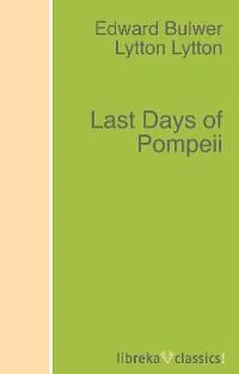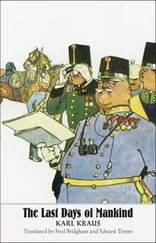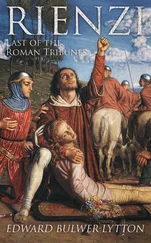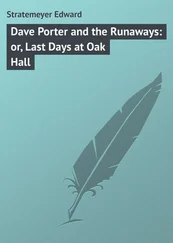Edward George Bulwer-Lytton - Last Days of Pompeii
Здесь есть возможность читать онлайн «Edward George Bulwer-Lytton - Last Days of Pompeii» — ознакомительный отрывок электронной книги совершенно бесплатно, а после прочтения отрывка купить полную версию. В некоторых случаях можно слушать аудио, скачать через торрент в формате fb2 и присутствует краткое содержание. Жанр: unrecognised, на английском языке. Описание произведения, (предисловие) а так же отзывы посетителей доступны на портале библиотеки ЛибКат.
- Название:Last Days of Pompeii
- Автор:
- Жанр:
- Год:неизвестен
- ISBN:нет данных
- Рейтинг книги:5 / 5. Голосов: 1
-
Избранное:Добавить в избранное
- Отзывы:
-
Ваша оценка:
- 100
- 1
- 2
- 3
- 4
- 5
Last Days of Pompeii: краткое содержание, описание и аннотация
Предлагаем к чтению аннотацию, описание, краткое содержание или предисловие (зависит от того, что написал сам автор книги «Last Days of Pompeii»). Если вы не нашли необходимую информацию о книге — напишите в комментариях, мы постараемся отыскать её.
libreka classics – These are classics of literary history, reissued and made available to a wide audience.
Immerse yourself in well-known and popular titles!
Last Days of Pompeii — читать онлайн ознакомительный отрывок
Ниже представлен текст книги, разбитый по страницам. Система сохранения места последней прочитанной страницы, позволяет с удобством читать онлайн бесплатно книгу «Last Days of Pompeii», без необходимости каждый раз заново искать на чём Вы остановились. Поставьте закладку, и сможете в любой момент перейти на страницу, на которой закончили чтение.
Интервал:
Закладка:
Titel: Last Days of Pompeii
von William Shakespeare, H. G. Wells, Henry Van Dyke, Thomas Carlyle, Oscar Wilde, Joseph Conrad, Henry James, Anthony Hope, Henry Fielding, Giraldus Cambrensis, Daniel Defoe, Grammaticus Saxo, Edgar Rice Burroughs, Hugh Lofting, Agatha Christie, Sinclair Lewis, Eugène Brieux, Upton Sinclair, Booth Tarkington, Sax Rohmer, Jack London, Anna Katharine Green, Sara Jeannette Duncan, Xenophon, Alexandre Dumas père, John William Draper, Alice Christiana Thompson Meynell, Bram Stoker, Honoré de Balzac, William Congreve, Louis de Rougemont, Nikolai Vasilievich Gogol, Rolf Boldrewood, François Rabelais, Lysander Spooner, B. M. Bower, Henry Rider Haggard, William Hickling Prescott, Lafcadio Hearn, Robert Herrick, Jane Austen, Mark Twain, Mary Roberts Rinehart, Charles Babbage, Kate Douglas Smith Wiggin, Frank L. Packard, George Meredith, John Merle Coulter, Irvin S. Cobb, Edwin Mims, John Tyndall, Various, Charles Darwin, Sidney Lanier, Henry Lawson, Niccolò Machiavelli, George W. Crile, Théophile Gautier, Noah Brooks, James Thomson, Zane Grey, J. M. Synge, Virginia Woolf, Conrad Aiken, Edna St. Vincent Millay, Helen Cody Wetmore, Ayn Rand, Sir Thomas Malory, Gustave Flaubert, Edmond Rostand, Charlotte Brontë, Edith Wharton, Giles Lytton Strachey, Myrtle Reed, Ernest Bramah, Jules Verne, H. L. Mencken, H. Stanley Redgrove, Victor Lefebure, Edna Lyall, John Masefield, Charles Kingsley, Robert Burns, Edgar Lee Masters, Victor [pseud.] Appleton, Ellis Parker Butler, Mary Lamb, Charles Lamb, Johann Wolfgang von Goethe, Kenneth Grahame, Charles Dickens, John Ruskin, John Galt, James J. Davis, Owen Wister, William Blades, Sir Hall Caine, Sir Max Beerbohm, Baron Edward John Moreton Drax Plunkett Dunsany, Bret Harte, E. Phillips Oppenheim, Thomas Henry Huxley, A. B. Paterson, John N. Reynolds, Walter Dill Scott, Hans Gustav Adolf Gross, T. S. Eliot, Walt Whitman, Arthur Ransome, Jane Addams, Elizabeth, David Lindsay, Helen Bannerman, Charles A. Oliver, J. M. Barrie, Robert F. Murray, Andrew Lang, Jerome K. Jerome, Francis Thompson, Sydney Waterlow, Andrew Dickson White, Benjamin N. Cardozo, Karl Marx, Edouard Louis Emmanuel Julien Le Roy, Margaret Hill McCarter, Sir Donald Mackenzie Wallace, Howard Trueman, L. M. Montgomery, Frank T. Bullen, Baron Alfred Tennyson Tennyson, Jonathan Nield, Henry Wadsworth Longfellow, Charles Reade, Ouida, Washington Irving, Benjamin Louis Eulalie de Bonneville, Sir Walter Scott, Stewart Edward White, Arthur Hugh Clough, Baron Edward Bulwer Lytton Lytton, C.-F. Volney, T. Troward, graf Leo Tolstoy, Christopher Morley, James Madison, Alexander Hamilton, John Jay, Gilbert White, Percival Lowell, Frederick Marryat, Robert Graves, Thomas Holmes, Wilkie Collins, Maria Edgeworth, Katherine Mansfield, E. Nesbit, Olive Schreiner, Jeronimo Lobo, O. Henry, James Slough Zerbe, Donald Ogden Stewart, Johanna Spyri, Eleanor H. Porter, William Tatem Tilden, Sol Plaatje, Rafael Sabatini, William Makepeace Thackeray, George Gissing, Maksim Gorky, Baron Thomas Babington Macaulay Macaulay, H. G. Keene, Saki, R. B. Cunninghame Graham, Thomas Hughes, David Nunes Carvalho, Vicente Blasco Ibáñez, Carry Amelia Nation, John Fiske, Bernard Shaw, Elbridge Streeter Brooks, William Holmes McGuffey, Edward Everett Hale, Louis Ginzberg, Chester K. Steele, Christopher Marlowe, Plato, John Lord, Shakespeare, Martin Luther, Frances Hodgson Burnett, Howard Pyle, Charles Morris, Edward Carpenter, Maurice Leblanc, James Boswell
ISBN 978-3-7429-1509-2
Alle Rechte vorbehalten.
Es ist ohne vorherige schriftliche Erlaubnis nicht gestattet, dieses Werk im Ganzen oder in Teilen zu vervielfältigen oder zu veröffentlichen.
THE LAST DAYS OF POMPEII
by Edward George Bulwer-Lytton
Contents
BOOK THE FIRST BOOK THE FIFTH Chapter I Chapter II Chapter III Chapter IV Chapter V Chapter VI Chapter VII Chapter VIII Chapter IX Chapter X Chapter The Last Chapter I. BOOK THE FIRST Chapter II Chapter III Chapter IV Chapter V Chapter VI Chapter VII Chapter VIII BOOK THE SECOND Chapter I Chapter II Chapter IIIChapter IV Chapter V Chapter VI Chapter VII Chapter VIII Chapter IX |
BOOK THE THIRD Chapter IChapter II Chapter III Chapter IV Chapter VChapter VI Chapter VII Chapter VIII Chapter IX Chapter X Chapter XI |
BOOK THE FOURTH Chapter IChapter II Chapter III Chapter IV Chapter V Chapter VI Chapter VII Chapter VIII Chapter IX Chapter X Chapter XI Chapter XII Chapter XIII Chapter XIV Chapter XV Chapter XVI Chapter XVII |
BOOK THE FIFTH Chapter IChapter II Chapter III Chapter IV Chapter V Chapter VI Chapter VII Chapter VIII Chapter IX Chapter X Chapter The Last |
BOOK THE FIRST
Chapter I.
THE TWO GENTLEMEN OF POMPEII.
'HO, Diomed, well met! Do you sup with Glaucus to-night?' said a young man of small stature, who wore his tunic in those loose and effeminate folds which proved him to be a gentleman and a coxcomb.
'Alas, no! dear Clodius; he has not invited me,' replied Diomed, a man of portly frame and of middle age. 'By Pollux, a scurvy trick! for they say his suppers are the best in Pompeii'.
'Pretty well—though there is never enough of wine for me. It is not the old Greek blood that flows in his veins, for he pretends that wine makes him dull the next morning.'
'There may be another reason for that thrift,' said Diomed, raising his brows. 'With all his conceit and extravagance he is not so rich, I fancy, as he affects to be, and perhaps loves to save his amphorae better than his wit.'
'An additional reason for supping with him while the sesterces last. Next year, Diomed, we must find another Glaucus.'
'He is fond of the dice, too, I hear.'
'He is fond of every pleasure; and while he likes the pleasure of giving suppers, we are all fond of him.'
'Ha, ha, Clodius, that is well said! Have you ever seen my wine-cellars, by-the-by?'
'I think not, my good Diomed.'
'Well, you must sup with me some evening; I have tolerable muraenae in my reservoir, and I ask Pansa the aedile to meet you.'
'O, no state with me!—Persicos odi apparatus, I am easily contented. Well, the day wanes; I am for the baths—and you...'
'To the quaestor—business of state—afterwards to the temple of Isis. Vale!'
'An ostentatious, bustling, ill-bred fellow,' muttered Clodius to himself, as he sauntered slowly away. 'He thinks with his feasts and his wine-cellars to make us forget that he is the son of a freedman—and so we will, when we do him the honour of winning his money; these rich plebeians are a harvest for us spendthrift nobles.'
Thus soliloquising, Clodius arrived in the Via Domitiana, which was crowded with passengers and chariots, and exhibited all that gay and animated exuberance of life and motion which we find at this day in the streets of Naples.
The bells of the cars as they rapidly glided by each other jingled merrily on the ear, and Clodius with smiles or nods claimed familiar acquaintance with whatever equipage was most elegant or fantastic: in fact, no idler was better known in Pompeii.
'What, Clodius! and how have you slept on your good fortune?' cried, in a pleasant and musical voice, a young man, in a chariot of the most fastidious and graceful fashion. Upon its surface of bronze were elaborately wrought, in the still exquisite workmanship of Greece, reliefs of the Olympian games; the two horses that drew the car were of the rarest breed of Parthia; their slender limbs seemed to disdain the ground and court the air, and yet at the slightest touch of the charioteer, who stood behind the young owner of the equipage, they paused motionless, as if suddenly transformed into stone—lifeless, but lifelike, as one of the breathing wonders of Praxiteles. The owner himself was of that slender and beautiful symmetry from which the sculptors of Athens drew their models; his Grecian origin betrayed itself in his light but clustering locks, and the perfect harmony of his features. He wore no toga, which in the time of the emperors had indeed ceased to be the general distinction of the Romans, and was especially ridiculed by the pretenders to fashion; but his tunic glowed in the richest hues of the Tyrian dye, and the fibulae, or buckles, by which it was fastened, sparkled with emeralds: around his neck was a chain of gold, which in the middle of his breast twisted itself into the form of a serpent's head, from the mouth of which hung pendent a large signet ring of elaborate and most exquisite workmanship; the sleeves of the tunic were loose, and fringed at the hand with gold: and across the waist a girdle wrought in arabesque designs, and of the same material as the fringe, served in lieu of pockets for the receptacle of the handkerchief and the purse, the stilus and the tablets.
Читать дальшеИнтервал:
Закладка:
Похожие книги на «Last Days of Pompeii»
Представляем Вашему вниманию похожие книги на «Last Days of Pompeii» списком для выбора. Мы отобрали схожую по названию и смыслу литературу в надежде предоставить читателям больше вариантов отыскать новые, интересные, ещё непрочитанные произведения.
Обсуждение, отзывы о книге «Last Days of Pompeii» и просто собственные мнения читателей. Оставьте ваши комментарии, напишите, что Вы думаете о произведении, его смысле или главных героях. Укажите что конкретно понравилось, а что нет, и почему Вы так считаете.












